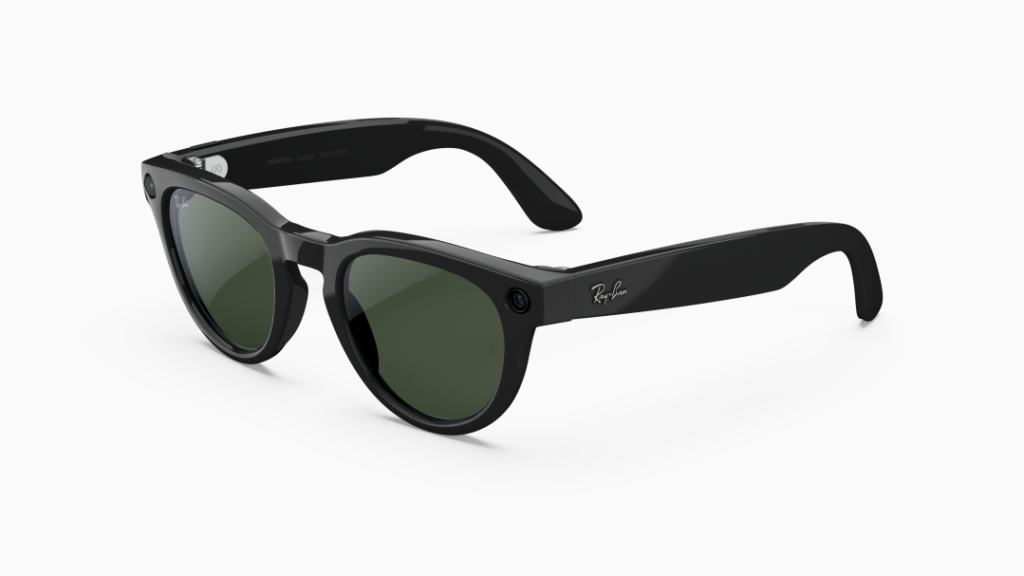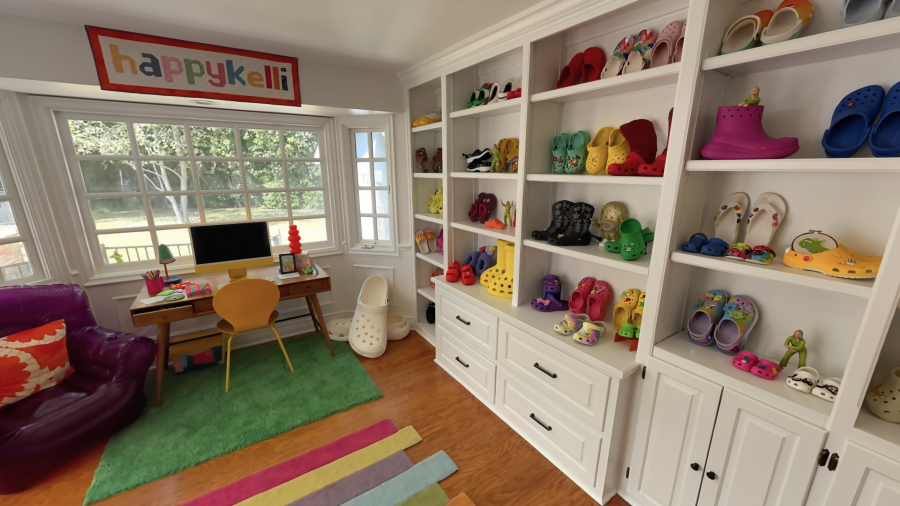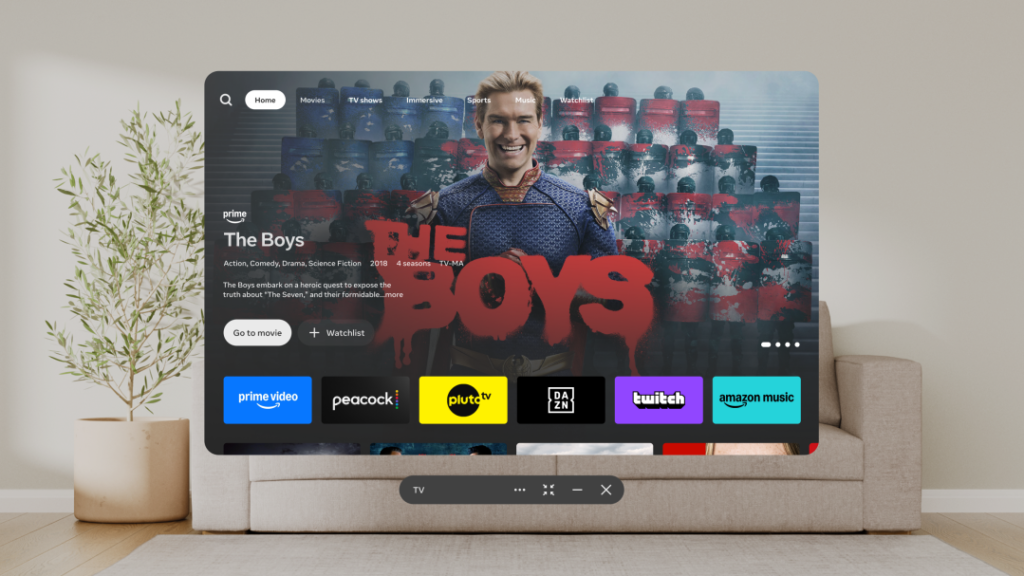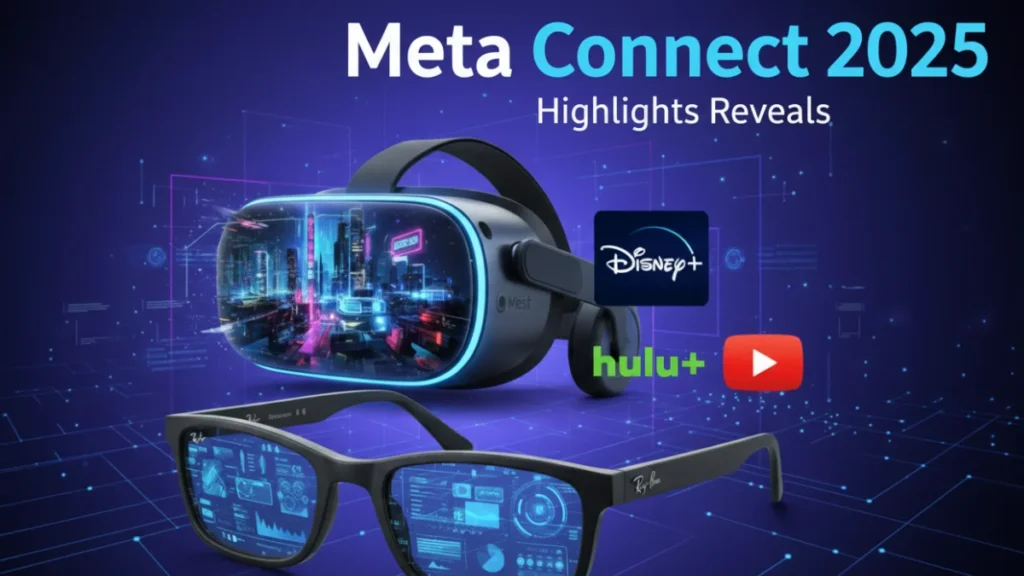Meta’s annual Connect conference just delivered its boldest vision yet. From display-equipped Ray-Ban glasses to VR that can scan your living room, the company is betting big on AI-powered wearables.
But glitches on stage — and fierce competition in AR/VR — show the road ahead won’t be easy.
Key Takeaways
- Meta launches Ray-Ban Display glasses with built-in color screen.
- Quest VR headsets get Hyperscape, turning real rooms into digital worlds.
- Oakley “Vanguard” AI sports glasses integrate with Garmin and Strava.
- Horizon TV hub brings Disney+, ESPN, Hulu, and immersive movies.
- Meta shares rise despite on-stage glitches during live demos.
Meta Connect 2025 introduced Ray-Ban Display glasses with a built-in color screen, new Oakley sports AI glasses, and Hyperscape VR that transforms real spaces into digital worlds. The event also added Horizon TV with Disney+ integration and a graphics boost for the Horizon Engine, signaling Meta’s deeper push into wearable AI and immersive media.
Meta bets big on AI wearables
Meta Connect 2025, held in Menlo Park, was dominated by a wave of new hardware and software designed to bring AI wearables into everyday life. The highlight: the first-ever Ray-Ban Display smart glasses, featuring a full-color micro display in the right lens.
The device can show messages, live captions, video calls, and walking directions — all controlled through a neural wristband that tracks hand and muscle movements. Starting at $799, the glasses ship in the U.S. on September 30.
Smarter Ray-Ban glasses, longer battery

Meta also unveiled the second-generation Ray-Ban Meta smart glasses, with a battery life stretched to eight hours — nearly double the original model. The updated pair supports 3K video capture at 60fps, with improved microphones and a new “conversation focus” mode that amplifies voices in noisy environments.
At $379, they remain the entry point into Meta’s smart eyewear line.
Oakley Vanguard targets athletes
In partnership with Oakley, Meta launched the Vanguard glasses, built for athletes and outdoor enthusiasts. The wraparound design, IP67 water/dust resistance, and integration with Garmin and Strava make them a fitness-focused upgrade.
Priced at $499, the glasses include a wide-angle camera and support new modes like time-lapse and hyperlapse. They launch October 21, with preorders already live.
Hyperscape brings your home into VR

Beyond wearables, Meta’s boldest software play is Hyperscape — a system that lets Quest 3 and Quest 3S users scan their rooms and recreate them inside VR.
The rollout starts today in early access via the Hyperscape Capture app. While rendering takes hours, the results are photorealistic spaces where, eventually, friends can join via private links.
Meta has already demoed spaces including Gordon Ramsay’s kitchen, Chance the Rapper’s sneaker room, and the UFC Octagon.
Horizon TV: Disney+, Dolby Atmos, and immersive films

Entertainment got a boost with Horizon TV, a new hub for Quest headsets. It centralizes apps like Prime Video, YouTube, and Twitch while adding Disney+, ESPN, and Hulu later this year.
Some films, such as M3GAN and The Black Phone, will feature “immersive special effects” viewable only in VR. Dolby Atmos is available now, with Dolby Vision support promised.
Horizon Engine powers Meta’s metaverse future
Meta also showcased updates to its Horizon Engine, designed for better graphics, faster performance, and larger multiplayer spaces. The company is layering in an AI assistant within Horizon Studio to help creators stitch together assets and build more advanced virtual worlds.
This upgrade reflects Meta’s long-term vision: AI not only powering wearables but also the underlying infrastructure of its metaverse ecosystem.
Market reaction and live mishaps
Despite several technical glitches — including the neural wristband failing to respond on stage — Meta’s stock price rose slightly after the event, suggesting investors remain confident in the wearable-first strategy.
CEO Mark Zuckerberg dismissed the glitches as the result of “brutal WiFi” in the hall.
The bigger picture
Meta is racing against Apple, Google, and startups like Humane to own the AI wearable space. With smart glasses now positioned as the company’s flagship product, Meta is betting consumers are ready to swap smartphones for face-mounted AI assistants.
If successful, the shift could redefine how billions interact with digital content — from entertainment to navigation to communication.
Conclusion
Meta Connect 2025 signaled a clear pivot: AI glasses, not just VR headsets, are now Meta’s center of gravity. But with high price points and lingering questions about mainstream adoption, the gamble is just beginning.
